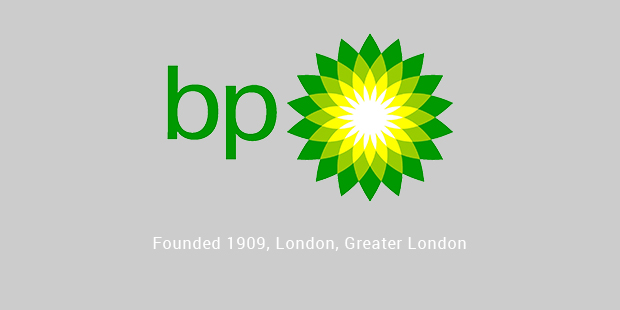BP is one of the world’s seven oil and gas ‘supermajors’, founded in 1902 and headquartered in London. Formerly known as The British Petroleum Company, it undertakes activity in all areas of the oil and gas industry, including exploration, refining, distribution, marketing and trading. BP has more than 180,000 service stations in locations worldwide and produces more than 3.8m barrels of oil each day. The company is also listed on the Frankfurt Stock Exchange and NYSE and was featured in the Forbes Global 2000 in 2020, which measures the largest public companies in the world. 2020 and 2021 were challenging years for the oil and gas industries, as global demand for oil fell due to restrictions on travel and industrial activity, and BP saw its lowest revenue figure in over 16 years. The company has been at the centre of several major environmental incidents, including the Deepwater Horizon oil spill. As a result, BP is now expanding its renewable energy interests in biofuels, wind power and solar technology, so this may be a company to look out for, given the increasing demand for renewable energy sources.
BP PLC, formerly called Anglo-Persian Oil Company, Ltd. (1909–35), Anglo-Iranian Oil Company, Ltd. (1935–54), British Petroleum Company Limited (1954–82), British Petroleum Company PLC (1982–98), and BP Amoco (1998–2000), British petrochemical corporation that became one of the world’s largest oil companies through its merger with the Amoco Corporation of the United States in 1998. BP was initially registered on April 14, 1909, as the Anglo-Persian Oil Company, Ltd. It was renamed the Anglo-Iranian Oil Company, Ltd., in 1935 and changed its name to the British Petroleum Company Limited in 1954. The name British Petroleum Company PLC was adopted in 1982. After merging with Amoco in 1998, the corporation took the name BP Amoco before assuming the name BP PLC in 2000. The company’s headquarters are in London.

The Anglo-Persian Oil Company was formed to take over and finance an oil-field concession granted by the Iranian government to an English investor, William Knox D’Arcy. The first successful oil wells were drilled at Masjed Soleymān, and crude oil was piped to a refinery built at Ābādān, from which the first cargo of oil was exported in March 1912. Other Iranian fields and refineries were built, and by 1938 Ābādān had the largest single refinery in the world. The concession was revised in 1933, briefly suspended in 1951–53, and renewed in 1953 in a consortium with other oil companies.
In 1914 the British government became the company’s principal stockholder and remained so. Effective January 1, 1955, British Petroleum became a holding company. Beginning in 1977, the British government reduced its ownership of British Petroleum by selling shares to the public, and in the late 1980s the government turned over British Petroleum entirely to private ownership by selling its remaining shares. This cleared the way for British Petroleum to acquire Britoil PLC, an independent oil company that produced oil from the North Sea fields.
British Petroleum developed oil fields and built refineries in several more countries, including major interests in Alaska’s Prudhoe Bay in the United States and in the United Kingdom’s sector of the North Sea, where British Petroleum made in 1965 the first commercial discovery of natural gas and in 1970 the first discovery of a major oil field. Beginning in 1970, BP merged its assets in the United States with those of the Standard Oil Company (Ohio), in which BP acquired a controlling interest. In 1987 BP acquired the remainder of the Standard Oil Company for almost $8 billion. In merging with U.S. oil giant Amoco in 1998, the newly created BP Amoco became the one of the largest petroleum concerns in the world. The corporation changed its name to BP PLC following the acquisitions, in 2000, of Atlantic Richfield Company (known for ARCO brand gasoline in the western United States) and Burmah Castrol (a leading British oil, gas, and lubricants company).
In 2010 the offshore drilling rig Deepwater Horizon, owned by Transocean and leased by BP, exploded and collapsed, causing a rupture in the riser of a very deep oil well. An estimated 4.9 million barrels of oil were released into the Gulf of Mexico—the largest marine oil spill in history. The company subsequently paid billions of dollars in damages to individuals and businesses affected by the spill. In 2012 BP agreed to pay more than $4.5 billion in fines and penalties to the U.S. government and to plead guilty to 14 criminal charges. In 2015, as part of a civil trial, it agreed to pay some $20 billion.
BP and its subsidiaries and associated companies continue to engage in the exploration, production, refining, transportation, and distribution of oil and natural gas and in the manufacture of chemicals, plastics, and synthetic fibres. It operates convenience stores and filling stations through brands such as BP, Aral, ARCO, and am/pm.
In the late 20th century BP was a major investor in green energy, and in 2003 the company unveiled the slogan “Beyond Petroleum.” However, within a decade BP had scaled back its renewable energy efforts. Notably, in 2012 the company closed its solar energy unit.
fastnews anout BP Company BP Company Information in hindi BP Company Information fastnews anout BP Company BP Company Information in hindi BP Company Information fastnews anout BP Company BP Company Information in hindi BP Company Information fastnews anout BP Company BP Company Information in hindi BP Company Information fastnews anout BP Company BP Company Information in hindi BP Company Information








[…] The interconnection became operational on 1 April 2011,[23][24] and by January 2012, electricity flow had mostly been from the Netherlands to the United Kingdom.[25] The BritNed interconnection would serve as a vital link for the foreseeable European super grid project.[26] In the spring of 2011, National Grid sold off its services in New Hampshire, after their request to increase gas and electric rates was denied.[27] […]